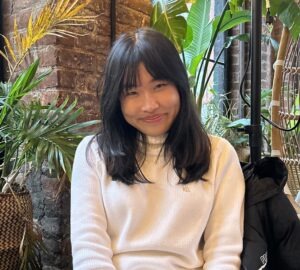Protecting Users in the World of Generative-AI Music

(Source)
It has been six months since Ghostwriter977’s release of AI-Drake and AI-Weeknd’s “Heart on My Sleeve.” The one-minute snippet was completely generated by artificial intelligence that modeled Metro Boomin’s distinctive beats and both Drake and the Weeknd’s voices. Approximately two weeks after, the infringing work was taken down based on a copyright claim by Universal Music Group. Following the legal debate around the rise of generative artificial intelligence (AI), TikTok published its “AI-generated” label for AI-generated visual or audio content last month. Creators must attach this label to TikTok videos that contain realistic portrayals, both audio and video, to help contextualize the video and prevent the potential spread of misleading content. The “AI-generated” label may apply to any content that has been completely edited or generated by AI.
In contrast, music streaming giant Spotify has not yet created notices for creators to attach to their content. Spotify head Daniel Ek has taken the position that AI-assisted music creations are acceptable while stances on generative AI are unknown. Ek’s position makes sense: AI can speed up music generation immensely. AI has made music production accessible and affordable to aspiring artists. Rather than spending hours recording and editing instrumentals, artists can generate instrumentals in seconds through apps such as Boomy.
While AI can be used in productive ways to inspire or assist creators with new content, it can be problematic for copyright purposes. The problem is the unlawful profit that original creators would have otherwise received from their copyrighted works but for the copycat works outputted by generative AI. Copyright law vests all exclusive rights to the copyright, including their derivative works. Those who wish to create derivative works need to obtain permission from the original copyright holder, usually in the form of licenses.
For musical works, the underlying composition and sound recording may be copyrighted. When creating generative AI for music and audio, AI models are trained on data to generate content. Meta launched Audiocraft to generate music and audio output based on users’ text inputs. The model was trained on Meta-owned and specifically licensed music. Although the training data may be lawfully obtained as in the case of Meta, copyright issues arise from substantially similar audio outputs which infringe on the copyright owner’s exclusive right to their work. Substantial similarity occurs when a defendant’s copyright rises to the level of an unlawful act through the perspective of a lay listener or ordinary observer. Because generative AI is based on inputs from existing works, the outputs may generate substantially similar works to that of the original data that has been inputted into the system.
The good news for copyright owners is that solely machine-generated works may not be copyrighted. However, works that have minimum human creativity in their creation may. In the Copyright Office’s view, copyright can protect only material that is the product of human creativity. The term author used in both the Constitution and the Copyright act excludes non-humans. Thus, in February 2023, the Copyright Office concluded that a graphic novel comprised of human-authored text combined with generative AI images from Midjourney constituted a copyrightable work, except for the images solely generated with AI.
Moving forward, both creators and platforms alike need to reckon with AI’s impacts. TikTok has already noted the issues that have arisen with generative AI capabilities and therefore pushes creators to notify users of any AI usage in their content. A similar approach by major streaming platforms like Spotify may help protect users from potentially infringing behavior as generative AI becomes more accessible. By providing notice of AI use, users may communicate their intent to create AI-assisted original content rather than mere copycats of original works. On the platform and label side, they may identify AI use more readily to flag and take down infringing content such as Ghostwriter977’s “Heart on My Sleeve.”
Suggested Citation: George Lee, Protecting Users in the World of Generative-AI Music, Cornell J.L. & Pub. Pol’y, The Issue Spotter (November 13, 2023), http://jlpp.org/blogzine/protecting-users-in-the-world-of-generative-ai-music/.

Hello! I’m a J.D. candidate at Cornell Law School and received my B.S. in Policy Analysis and Management from Cornell University. My legal and policy interests include media, entertainment, and technology. Outside of the Journal of Law and Public Policy, I am involved in the I.P. and Tech Student Organization and Big Red Ventures.

